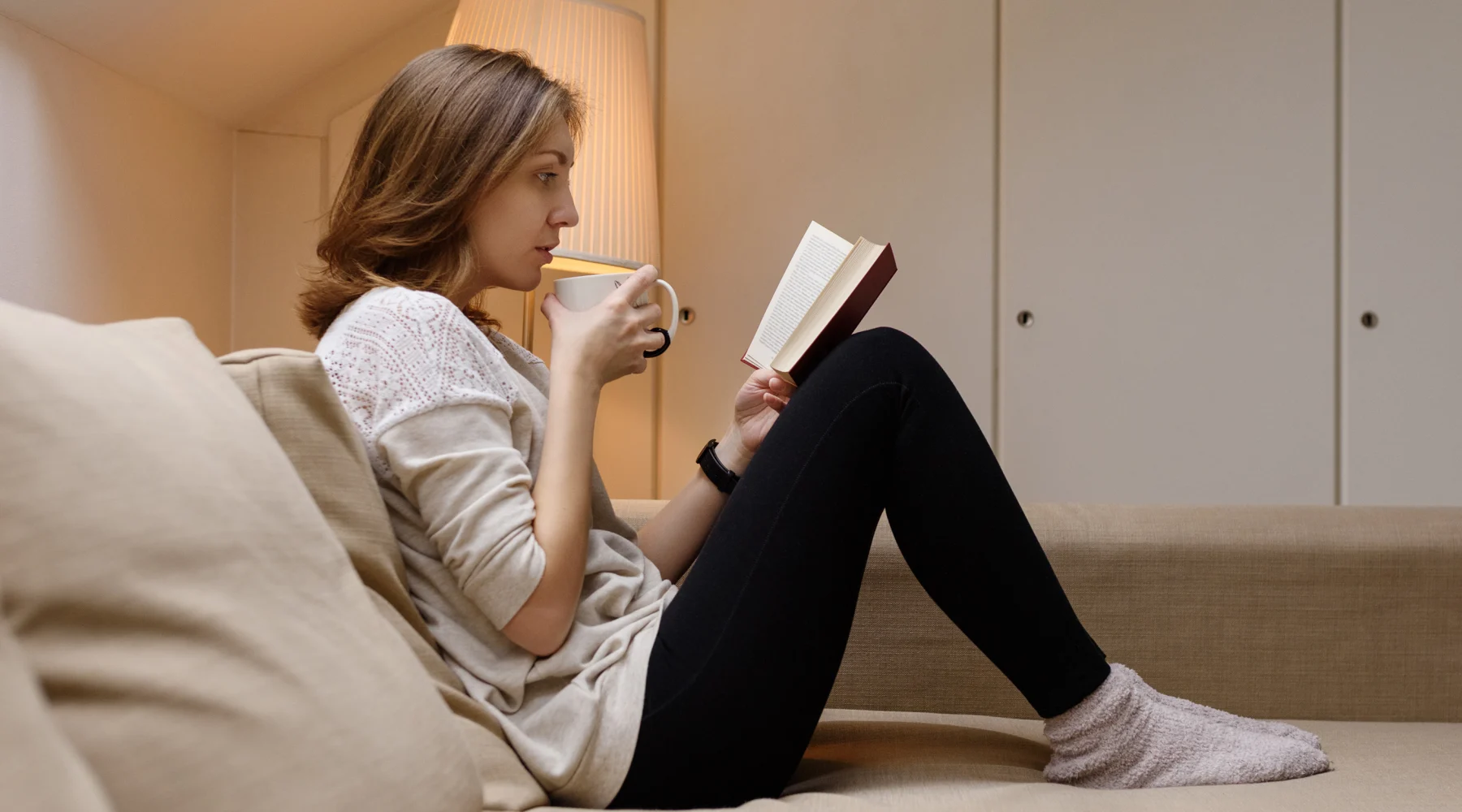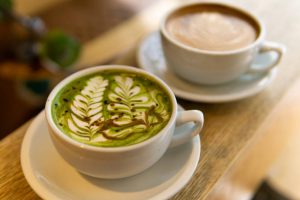
Picture this: It's getting later in the day, and you're losing steam. Do you reach for a matcha or a cup of coffee to power you through the afternoon without destroying your sleep? The decision plays out in the minds of many people each day, myself included. While both certainly have their perks, one just might be better for those struggling to catch some Z's.
Let's be clear: This is quite a nuanced answer.
"First of all, excessive intake of coffee or matcha will disrupt your sleep," integrative and functional medicine doctor Bindiya Gandhi, M.D., tells mbg. So having a few cups too many of either caffeinated beverage is sure to get in the way of rest. However, there are more factors at play here. Below, a quick breakdown of things to consider:
"Matcha may have lower amounts of caffeine compared to one cup of coffee, at about 50 milligrams, compared to coffee at about 95 milligrams," Gandhi says. So if you're measuring one for one, matcha is going to be on the lower end of the caffeine spectrum.
What's more, "Many people enjoy matcha if they are caffeine sensitive because [its] L-theanine helps balance caffeine spikes and improve focus, mood, sleep, and energy throughout the day," Gandhi says—so this green tea does come with even more benefits than just an energy boost.
Gandhi says limiting your coffee intake to one or two cups per day is recommended if you're sensitive to caffeine. The same applies to matcha, though some people may be able to sneak in more cups of this tea given that it's slightly less caffeinated.
What time you drink your caffeinated beverages matters, too. Gandhi recommends consuming coffee or matcha before noon if possible. This way, you'll be less likely to disrupt your body's natural circadian rhythm that supports optimal melatonin production come bedtime. Coffee has a pretty long half-life of around five hours (meaning it will take five hours for your body to process half of it), making drinking it earlier in the day essential for many people.
"Of course when it comes to caffeine, many people get in trouble by adding additional sugar and creamers, which can impact your blood sugar and leptin levels making you crave more sugars, carbs, and sweets with your cup of joe," Gandhi says.
Whether you're making a matcha latte or a cup of coffee, try to limit the added sugar when you can, especially if you're drinking it later in the day.

No matter which one you choose, there are ways to make coffee and matcha a bit gentler on your energy levels and sleep rhythm. Below, a few quick tips:
While excess intake of both matcha and coffee can interfere with a good night's sleep, matcha does contain less caffeine and it has other potentially calming properties. When building your daily cup, be mindful of how much you drink, sugar content, and what time you ingest caffeine in order to prevent it from disrupting your sleep. Want to learn more? Read all about how the health benefits of matcha and coffee stack up here. And if you're looking for ways to get energized without caffeine, here are a couple to try.
Does coffee or matcha have a greater impact on sleep quality ?
Exploring how coffee and matcha affect sleep patterns helps determine which is less likely to disrupt sleep.
How does caffeine content in coffee and matcha compare in terms of sleep disturbance ?
Understanding the differing caffeine levels in coffee and matcha aids in assessing their impact on sleep quality.
Are there other components besides caffeine in coffee and matcha that may influence sleep ?
Beyond caffeine, examining other compounds in coffee and matcha unveils potential factors contributing to sleep disruption.
Can the timing of coffee or matcha consumption affect sleep disturbances ?
Exploring when to consume coffee or matcha and its relevance to bedtime helps minimize potential sleep disturbances.
Are there alternatives or strategies to enjoy coffee or matcha without affecting sleep negatively ?
Discovering alternative preparation methods or consumption practices may mitigate the risk of sleep disruption caused by coffee or matcha.
